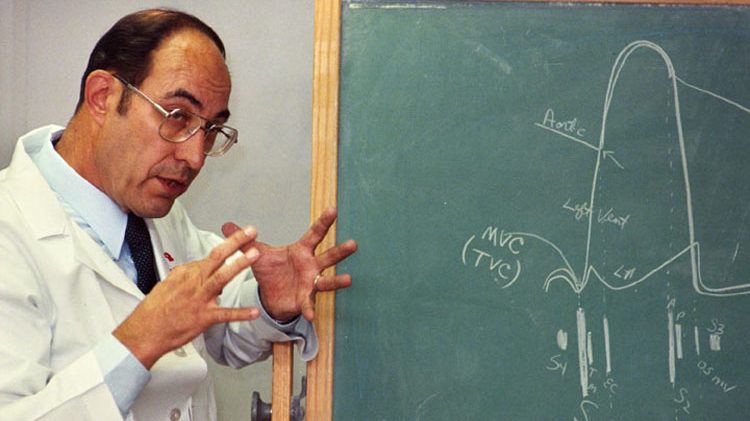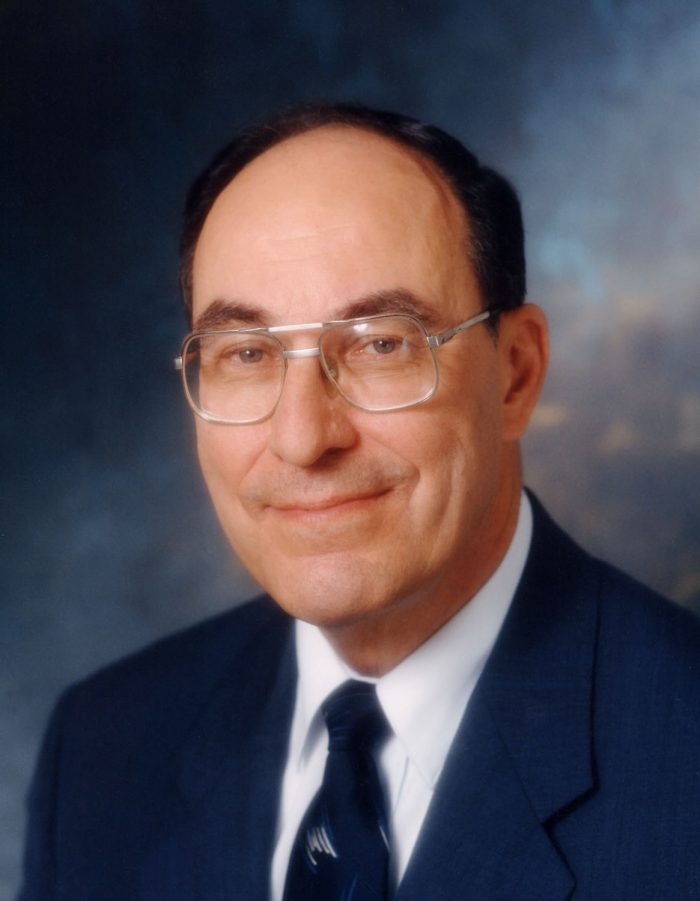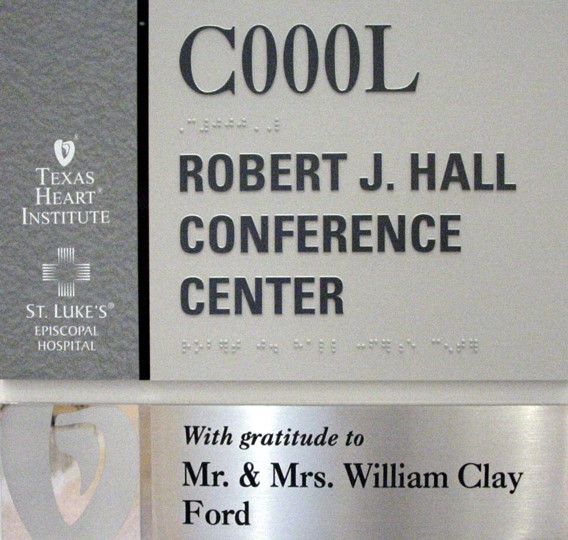Did You Know? Remembering Dr. Robert J. Hall

Three years ago, THI mourned the loss of one of its great leaders, Robert J. Hall, MD, renowned cardiologist and esteemed medical director of THI for 33 years (1969-2002). Dr. Hall began his medical career in the United States Army Medical Corps. From 1966 to 1969, as chief of cardiology at Walter Reed Hospital, he was personally responsible for the care of former U.S. President Dwight D. Eisenhower during the president’s extended illnesses. After President Eisenhower’s death in 1969, Dr. Hall retired from the Army and was recruited by Dr. Cooley to become the first medical director and chief of cardiology at THI. The Institute had been chartered for the purposes of research and education, and Dr. Hall was a perfect choice for championing these pursuits.
The timing of Dr. Hall’s arrival at THI was fortunate, given the extraordinary clinical load generated by the cardiovascular surgical group led by Dr. Cooley. Dr. Hall readily rose to the challenge. As a cardiologist, he had a reputation for his meticulous attention to diagnosis and treatment and for keeping abreast of newly developed techniques. He also advocated aggressive myocardial revascularization by using surgical and interventional techniques, which led to improvements in interventional cardiology and cardiovascular surgical technology. In his memoir, Dr. Cooley recalled, “With the addition of Dr. Hall, THI’s reputation continued to grow and brought more attention to Houston as a cardiovascular center.”

Dr. Hall had an enduring passion for education, holding teaching appointments at both Baylor College of Medicine and The University of Texas Medical School at Houston. Known as “the gentle giant,” Dr. Hall profoundly influenced students, residents, fellows, colleagues, and patients. His disarming sense of humor complemented his relaxed teaching style. Nevertheless, Dr. Hall challenged students to live up to their potential. He once said, “Each physician is a student who must dedicate time to acquiring technical knowledge and skills; in turn, each of us becomes a teacher, responsible for passing the information on to the next generation of health professionals.”
Dr. Hall’s popular annual symposium on identifying and characterizing heart sounds and murmurs attracted renowned speakers and attendees. He compiled a remarkable and complex indexed library of auscultation recordings and various physiologic tracings, which he made available to the public in several innovative electronic modes. While Dr. Hall was serving as the first director of cardiology education at THI, he taught heart sound lectures to rotating students. He declined being awarded the Attending Teaching Award by the fellows so many times that, in 2002, they decided to rename the award the Robert J. Hall Teaching Award. A teacher’s teacher, Dr. Hall’s legacy was more than 300 expertly trained clinical cardiology fellows who became cardiologists and who had learned the importance of placing the patient’s welfare first and foremost.
In 1982, Dr. Hall converted THI’s in-house journal of research and clinical findings, called Cardiovascular Diseases, into the Texas Heart Institute Journal. Under his editorship, the THI Journal underwent modifications in appearance, content, and methods of distribution, and it was accepted for indexing in Index Medicus and Medline. By the time Dr. Hall retired in 2002 after serving as editor-in-chief for two decades, the Journal had gained an international audience of readers and contributors.
Dr. Hall also headed many committees and projects that were fundamental to THI’s continued success. Among his many accolades was the Ray C. Fish Award for Scientific Achievement in Cardiovascular Disease (1989). He was a member of the U.S. president’s advisory panel on heart disease, Chairman of the Board of Governors and Trustees for the American College of Cardiology, and consultant to the Surgeon General of the Army. He authored or coauthored more than 150 articles and book chapters. The Robert J. Hall Conference Center on level B1 of the Denton A. Cooley building was named in his honor. At the time of Dr. Hall’s retirement, Dr. Cooley remarked, “We will long be grateful to Bob for his many contributions to the growth and development of these institutions, and will remember him also as a personal confidant, advisor, colleague, and friend.”





